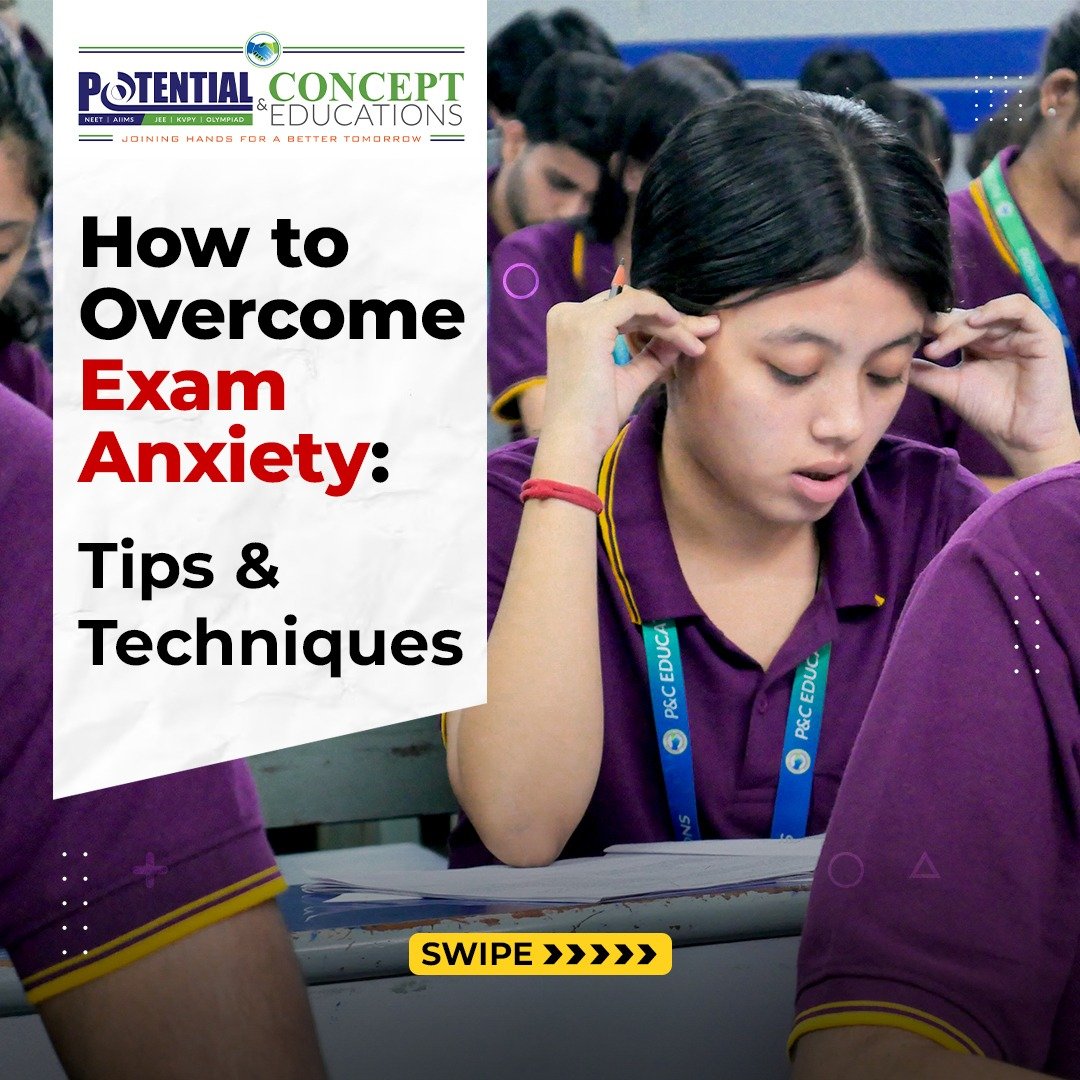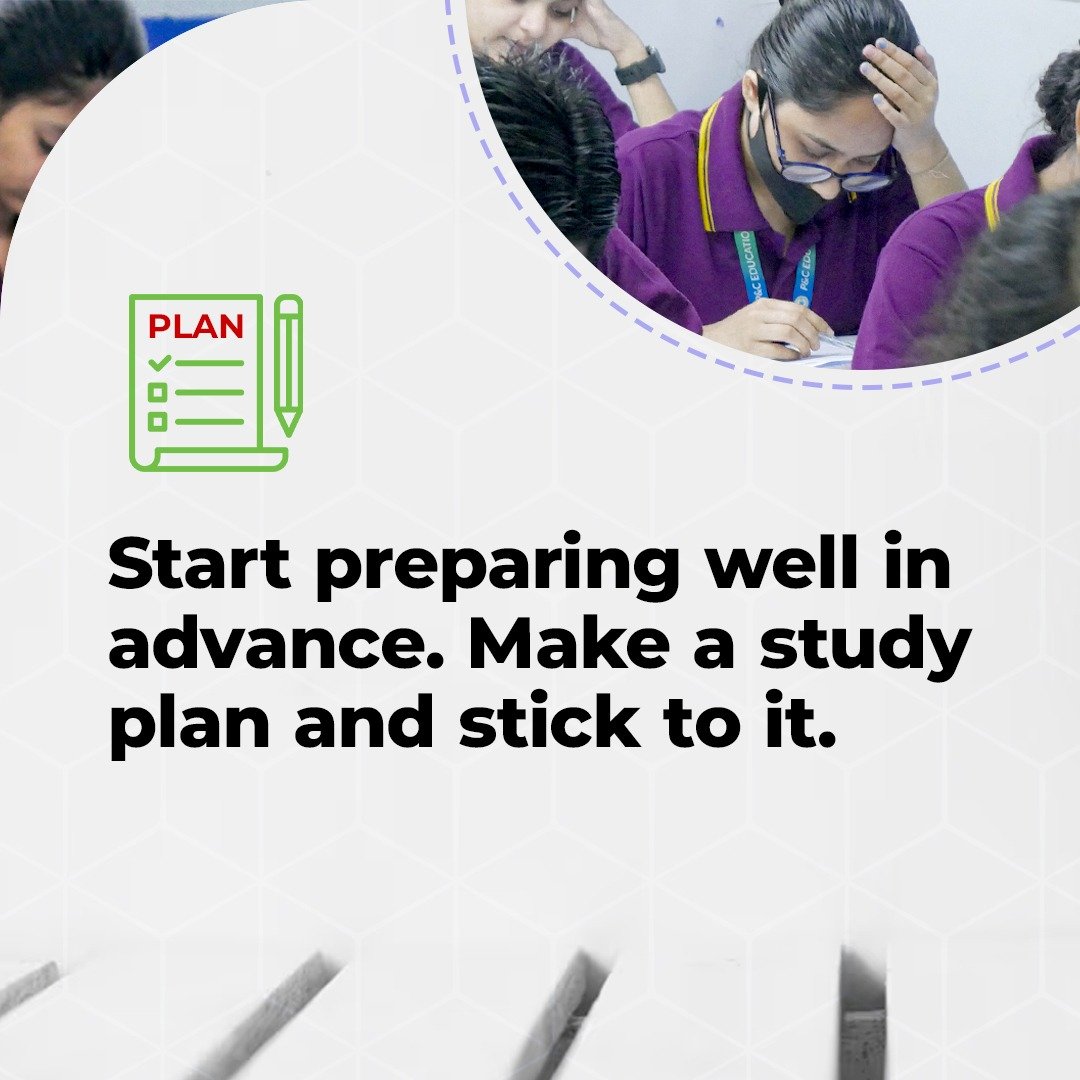9 most important tips on how to Overcome Exam Anxiety
As Exam fever is going on, so thought why not write about exam anxiety? These Exams can be a very stressful time for many students, and exam anxiety is a common problem among students. Stress and anxiety can be influenced by a variety of factors, including the dread of failing, the need to perform well, and the uncertainty of the result. There are, however, strategies for reducing tension and overcoming exam anxiety.
We'll go over nine of the most crucial strategies for controlling exam anxiety in this blog article.
Prepare Well in Advance
Being well-prepared is one of the best methods to combat exam anxiety. Start your exam preparation well in advance. You will have ample time to study thoroughly and will not have to worry about last-minute pressure. Create a study plan and follow it. Take frequent breaks and divide your study periods into digestible parts. You can stay focused and prevent burnout by doing this.
Practice Time Management
Managing your time effectively can help you feel more in control of your studies. You may feel more in charge of your academic life if you can successfully manage your time. To schedule your study time and make sure you have enough time to finish all the information before the exam, use a planner or calendar. To prevent burnout, divide your study periods into manageable portions and take regular breaks.
Exercise Regularly
Stress and anxiety can be reduced with regular exercise. Go for a stroll, jog, or practise some yoga while taking a break from studying. As you exercise, you may unwind and clear your head, which will improve your focus when you go back to school.
Practice Breathing Exercises
Breathe deeply and slowly exhale. Try to empty your mind of any distracting thoughts while concentrating on your breath. As another method to aid in relaxation, progressive muscle relaxation entails tensing and relaxing various muscle groups throughout your body.
Practice Positive Self-Talk
Replace negative thoughts with positive ones. Tell yourself that you can do it and that you are prepared. Use positive affirmations such as “I am confident and prepared for this exam” or “I will do my best and that is all that matters.”
Use Visualization Techniques
Visualize yourself doing well in the exam. Imagine yourself answering questions confidently and getting good grades. Visualizing success can help you feel more confident and prepared for the exam.
Get Enough Sleep
Getting enough sleep before the exam is essential. Lack of sleep can contribute to feelings of stress and anxiety. Make sure that you are getting at least 7-8 hours of sleep each night before the exam. Avoid staying up late to cram, as this can increase your anxiety.
Try Relaxation Techniques
Try techniques such as meditation, guided imagery, or yoga to help you relax and clear your mind. These techniques can help reduce stress and anxiety and help you feel more in control of your thoughts and emotions.
Seek Support
Talk to friends, family, or a counsellor if you are feeling overwhelmed. They can offer support and advice. Don't be afraid to ask for help if you need it. Many students experience exam anxiety, and it's important to know that you're not alone.
Conclusion
In conclusion, exam anxiety is a common problem faced by many students. However, there are ways to overcome exam anxiety and reduce stress. By preparing well in advance, managing your time effectively, exercising regularly, practicing breathing exercises, using positive self-talk and visualization techniques, getting enough sleep, trying relaxation techniques, and seeking support, you can reduce your anxiety and feel more confident and prepared for your exams. Remember to take care of yourself and prioritize your mental and physical health. Good luck on your exams!



























.png)





